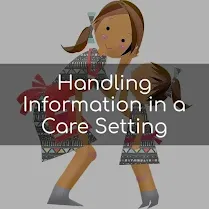Introduction:
Asbestos Awareness, endorsed by the Independent Asbestos Training Providers (IATP), educates individuals about asbestos exposure risks, including identification, handling, and management. It focuses on legal responsibilities and prevents accidental disturbances. This training is crucial for workers in construction, maintenance, demolition, and property management industries, reducing asbestos-related illnesses and fatalities.
Knowing About Asbestos
Asbestos-Related Health Risks
Examine the health hazards associated with exposure to asbestos. Find more about the illnesses that can arise from breathing in asbestos fibres, such as mesothelioma, asbestosis, and lung cancer. Knowing these dangers emphasises how important it is to raise awareness about asbestos - IATP.
Recognising Asbestos in the Industrial Setting
Learn how to recognise the materials that typically contain asbestos (ACMs) in buildings. With the help of this lesson, you will be able to identify any asbestos hazards and take the necessary safety measures at work.
Control and Management of Asbestos
Find out about risk management and control techniques for asbestos. Investigate various methods to reduce exposure, such as encapsulation and removal. The necessity of proactive steps in asbestos awareness—IATP—is emphasised in this module.
Obligations and Legal Framework
Recognise your legal responsibilities regarding asbestos handling. Learn about the laws and policies that are designed to shield the public and employees from the risks associated with asbestos. In order to ensure effective asbestos awareness, compliance is essential - IATP.









.jpg)
